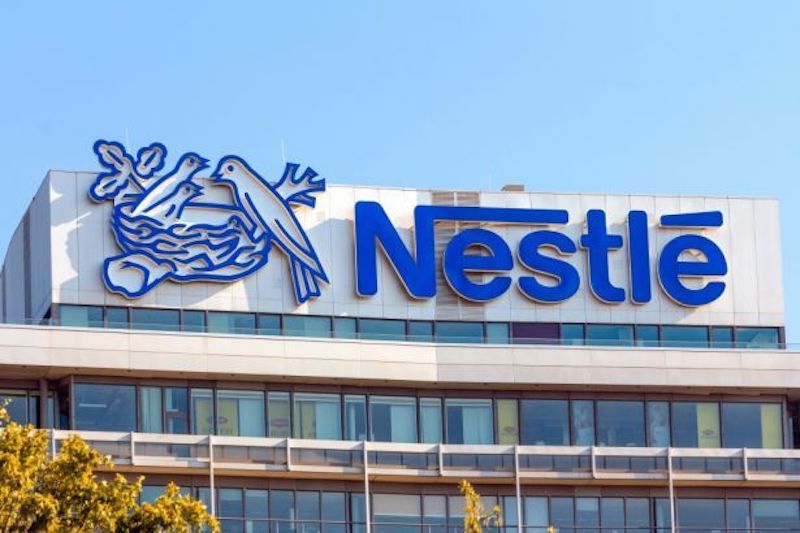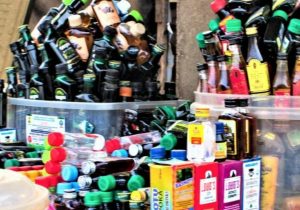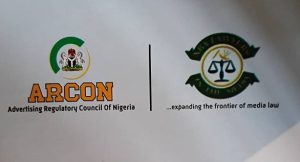
By Chikamara Roseline
Nestlé Nigeria Plc has remained a force to reckon with in its commitment to community development. The megabrand demonstrates a strong passion and commitment as It has aligned its corporate activities with principles of creating shared value – CSV. Between 2023 – late 2025, the company’s initiatives have focused more on vital areas: sustainability and circular economy, economic empowerment (for women and youth), greatly improved access to Water, Sanitation, and Hygiene (WASH), and education. These efforts have fostered resilient and active host communities across Nigeria. These are not just philanthropic activities but well-thought-out efforts to deliver measurable, long-term impact that supports Nigeria’s broader socio-economic goals.
Advancing Water Stewardship and Quality
A very important focus for Nestlé Nigeria in the recent past has been looking into and addressing the economic challenge of water scarcity and quality. This brought about the launch of Nestlé’s Water Quality Advocacy campaign, a careful and deliberate effort to promote access to quality water, especially in communities of concern.
The initiative involves:
- Strategic Partnerships: Collaborating with key government bodies, like the Federal Ministry of Water Resources and Sanitation, and the Organised Private Sector in Water, Sanitation, and Hygiene (OPS-WASH). This collaboration aims at tackling public health crises arising from poor water quality and safeguarding the nation’s future through sustainable water stewardship.
- WASH Facilities Commissioning: The company has continued its program of improving access to water and sanitation in schools within its host communities. Recently, this involved the successful completion of water and sanitation facilities to two schools, benefiting over 930 students and teachers with clean, safe drinking water and sanitation, which is quite commendable. This continuous investment builds on the commissioning of multiple WASH facilities over the years.
The activities move beyond mere compliance to a proactive stance on sustainable water use and public health awareness, which is vital for community well-being.
Economic Empowerment: Women and Youth
The company places an important emphasis on creating economic opportunities, with desired programs for women and youth that address unemployment and financial insecurity in their host communities.
Empowering Rural Women in Nigeria (ERWiN)
This initiative, focused on strengthening the company’s value chain while uplifting communities, has been actively expanded.
- Program Expansion: The ERWiN initiative has continued its rollout, expanding to new areas like Agbara, Ogun State, where 49 new female retailers were recently welcomed.
- Support Model: The focus of the program includes empowering female retailers of Nestlé products by providing them with product grants often valued at up to 300% of their existing business size, together with comprehensive business training and mentorship. Training covers essential skills like entrepreneurship, bookkeeping, merchandising, and customer service.
- Tangible Results: Since its inception, the program has supported over 380 women, with over 85% reporting sustained business expansion. This demonstrates a direct link between the company’s investment and the improved household incomes, improved access to nutrition, healthcare, and education for the families of the beneficiaries, showing a clear ripple effect in rural economies.
Youth Employability and Entrepreneurship
The company maintains its focus on youth development through vocational training and entrepreneurial support: - Technical Training Program: The Nestlé Technical Training Centers in Agbara, Abaji, and Flowergate continue to offer technical training, equipping young individuals with sought-after industrial skills to enhance their employability.
- “MyOwnBusiness” (MYOWBU) Initiative: This micro-enterprise initiative, primarily focused on selling hot Nestlé beverages, has provided a lifeline to thousands. Participants receive pushcarts, beverage kits, and mentorship to become self-reliant entrepreneurs. Recent figures indicate that over 400 MYOWBU operators are active across major cities, turning job seekers into job creators and deepening financial inclusion. The upskilling of over 300 operators in Lagos further reinforces its continuous nature. Environmental Stewardship and Circular Economy
Nestlé Nigeria has recently intensified its commitment to environmental sustainability, particularly in tackling plastic waste, which has a direct positive impact on community environments and livelihoods. - Nationwide Clean-Up Campaigns: The company organized its sixth consecutive nationwide clean-up and community sensitization campaign. This initiative mobilized hundreds of “Nestlé Cares” employee volunteers across 11 cities. Recent efforts resulted in the removal of over 5,601 kilograms of solid and 379.2 kilograms of recyclable waste, demonstrating tangible corporate-community collaboration in tackling waste burden in high-footfall market hubs.
- Plastic Recycling and Circularity: Through the Food and Beverage Recycling Alliance (FABRA) and partnerships with local social enterprises (like Chanja Datti, Wecyclers), Nestlé Nigeria has contributed to diverting over 61,000 metric tonnes of plastic waste from landfills since 2019. The company’s Plastic Advantage Programme further supports local aggregators and thousands of informal waste pickers with training, equipment, and financial incentives, effectively creating green income streams within communities. Furthermore, the company was recently recognized as the first in Nigeria to achieve circularity in its production value chain, marking a significant milestone in its environmental commitments.
Education and Regenerative Agriculture
Beyond direct economic and environmental projects, Nestlé maintains programs focused on foundational community needs: - Community Scholarship Scheme: The annual scholarship program for senior secondary and tertiary students from host communities in the Science and Technology fields continues to offer financial assistance, easing the educational burden on families. The 2025 program, for instance, is set to benefit 90 students with grants.
*Regenerative Agriculture: Through the MAGGI Regenerative Agriculture (RegenAg) initiative, launched recently, the company is investing in building resilient food systems. The pilot supported 1,030 local soybean farmers with training, inputs, and equipment on climate-smart practices (like cover cropping and minimal tillage). This initiative, with over ₦100 million invested in the pilot phase, aims to boost yields and restore soil health, securing the livelihoods of local farmers, especially women and youth, while ensuring a sustainable supply chain for a key product ingredient.



